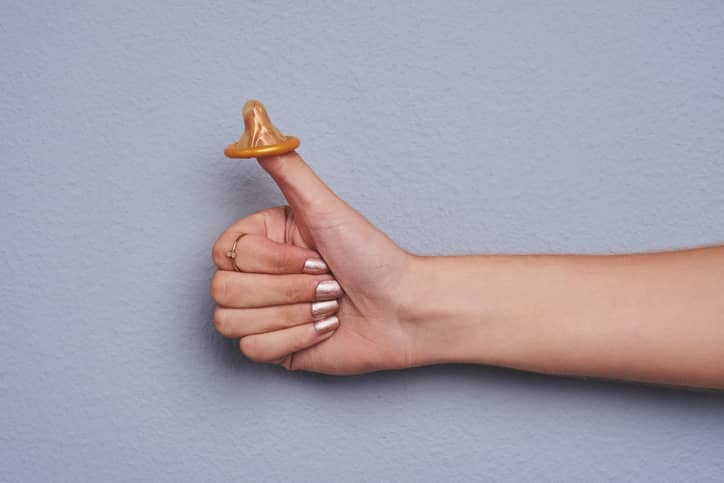What is oral sex? Is it safe? Can it cause pregnancy?
Lots of people have questions about oral sex. It used to be a subject that people avoided (taboo). But it’s a common sexual activity, and it’s important to be able to tell the myths from the facts – for the good of your sexual health. So read on to learn more.
What is oral sex?
Oral sex is using your mouth, lips or tongue to stimulate a person’s genitals. It can involve sucking or licking a penis (fellatio), vagina, vulva or clitoris (cunnilingus) or anus (anilingus).
How common is oral sex?
Oral sex is common. Lots of people have oral sex alongside, or instead of, sexual intercourse. But some people don’t like it, or choose not to do it as part of their sex life.
Is oral sex healthy?
Oral sex can be a healthy and enjoyable part of sex, if you enjoy it and choose to do it. But oral sex does have some health risks, too.
Is oral sex safe without protection?
If you’re wondering, ‘can oral sex cause pregnancy?’, the answer is no – you can’t get pregnant from oral sex alone.
However, it’s a myth that oral sex is completely ‘safe’. You can get or pass on some sexually transmitted infections (STIs) by having oral sex.

What STIs can you get or pass on by having oral sex?
The most common STIs you can get or pass on by having oral sex are:
You can also get or pass on some other STIs by having oral sex, although it doesn’t happen as often. They include:
Can you get or pass on HIV by having oral sex?
It’s possible to get or pass on HIV by having oral sex. But the risk is relatively low.
HIV is passed on through bodily fluids, such as seminal fluid from a penis, vaginal fluid (including menstrual fluid) and blood.
HIV can get into the body through the bloodstream, or by passing through thin skin known as ‘mucous membranes’ that are found inside some parts of the body, including the vagina, rectum and the tube that lets pee pass out of the body (urethra).
So, if you give oral sex and have bleeding gums or any cuts, sores or ulcers in your mouth, it’s possible that HIV in infected fluid could enter your bloodstream.
Read more about HIV and oral sex here.
How can you reduce the health risks of oral sex?
The risk of STIs is higher if you give (rather than get) oral sex. This is because you’re more likely to come into contact with genital fluids.
The risk is also higher if you have cuts, sores or ulcers in your mouth, and if you don’t use protection.
You should be careful in any case, though – and there are steps you can take to make oral sex safer.
You can reduce the health risks of oral sex by using protection, such as a condom or dental dam. A dental dam is a thin latex or plastic square that can cover a vagina or anus during oral sex to help prevent STIs.
Other ways to reduce the health risks of oral sex include avoiding oral sex if you or your partner:
- have an STI
- have cuts, sores or ulcers, warts or rashes around the mouth or genitals
- have piercings in the mouth or genitals that haven’t healed or are inflamed
- have a throat infection
- are on your period

What should you do if you think you may have an STI?
If you think you may have an STI, it’s important to see a doctor or go to a sexual health clinic.
If they’re not treated, STIs can affect your health and fertility – but most are treatable if they’re detected early enough.
Key points
- oral sex is using your mouth, lips or tongue to stimulate a person’s genitals
- oral sex can be a healthy and enjoyable part of sex if you like it and choose to do it
- you can’t get pregnant from oral sex alone
- you can get or pass on STIs by having oral sex
- you can reduce the health risks of oral sex by using protection, such as a condom or dental dam





